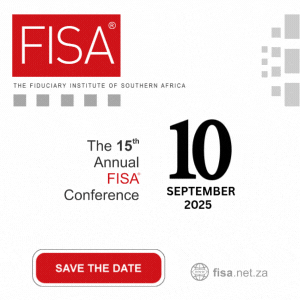Two former Liberty Group employees have been interdicted from publishing defamatory statements online and ordered to pay the company’s legal costs, after a High Court ruling found their social media claims crossed the line.
In a judgment handed down on 25 April, the High Court in Pietermaritzburg prohibited Siyabonga Chonco and Siyakutanda Mafuna – formerly a branch manager and a financial adviser at Liberty, respectively – from making or circulating any false or defamatory remarks about the company, its shareholder Standard Bank, or their employees and representatives.
The interdict applies to all social media platforms, including Facebook, X (formerly Twitter), LinkedIn, WhatsApp, and Instagram. The court also barred the pair from harassing Liberty executives and staff, either in person or online.
In addition, the court ordered Chonco and Mafuna to delete all defamatory content and pay Liberty’s legal costs on a punitive scale, jointly and severally.
Atish Dullabh, an associate at Norton Rose Fulbright, said the judgment highlights the balance between freedom of expression and the rights to dignity and reputation, particularly in cases where former employees air grievances publicly.
Liberty takes legal action after online fallout
The court action followed a series of online posts and messages that circulated in the business community. The conflict began in August 2023, when Liberty received complaints about Chonco’s conduct, prompting a forensic investigation. He was suspended in December, and following arbitration under the Labour Relations Act, was found guilty of all charges and dismissed.
Mafuna, who had been contracted to Liberty from May 2017 to March 2024, received notice of termination in February. Her defamatory posts reportedly began shortly after her exit.
According to court papers, the posts accused Liberty and Standard Bank of corruption, gender discrimination, and human rights violations.
Chonco and Mafuna used social media and direct messaging to claim they were dismissed without just cause, that the company protected wrongdoers, and that it engaged in systemic misconduct. Senior executives were named, and individuals were accused of abuse and participating in a cover-up. These allegations were widely circulated, including to high-profile figures in the business world.
In court, Chonco and Mafuna – who were in a romantic relationship – did not deny publishing the statements. Instead, they argued that the remarks were true, made in the public interest, or constituted fair comment.
They claim their disputes with Liberty were the result of how its employees acted in the course of their duties. Chonco traced the origin of the conflict to a grievance filed by his subordinate, Ms Mavundla, who said she felt demotivated under his leadership. He dismissed her claims as baseless and cited her poor performance.
Mediation led by Liberty executive Bayanda Mkhize recommended conflict resolution training for both parties, but Chonco rejected the report, saying it failed to address Mavundla’s alleged misconduct.
The situation escalated when Liberty launched a forensic investigation into Chonco. He claims the findings were never shared with him, and his dismissal was unjustified. He also said he was denied employment benefits, and Liberty refused payment on the basis of his dismissal. Chonco criticised the arbitration process, claiming it proceeded without his consent or presence and was based on weak evidence.
Mafuna faced similar issues. She claimed she was locked out of Liberty’s systems before her official dismissal date and denied access to provident fund and Unemployment Insurance Fund benefits. Both asserted that Liberty treated employees inconsistently and unfairly.
Court weighs facts, public interest, and fair comment
The key questions before the court were whether Chonco and Mafuna’s statements were true, in the public interest, or amounted to fair comment – and whether Liberty met the requirements for a final interdict.
Counsel for Liberty argued the statements were false, damaging to the company’s reputation, and motivated by personal grievances following the respondents’ dismissals. They said the claims lacked a factual basis and were not made for the public’s benefit.
In response, counsel for Chonco and Mafuna maintained the statements were not wrongful, but responses to unfair treatment by Liberty staff. They argued that the harm, if any, had already occurred and pointed out that Mafuna had taken down her posts after receiving a legal notice.
Judge Mbuzeni Mathenjwa ruled that Chonco and Mafuna admitted to publishing defamatory statements but failed to provide evidence to back their claims. The posts – including calling Liberty a “scam” and “trash” and accusing a senior executive of being a “woman abuser” and a “danger to society” – were found to imply criminality and serious harm without substantiation.
Although acknowledging that the pair’s grievances arose from their dismissals, the judge emphasised that labour disputes must be addressed through the proper legal channels.
“Although the respondents are not prohibited from making statements about unfair labour practices in the workplace, the appropriate forum for ventilating such grievances, particularly serious allegations relating to violations of employee rights, is the Commission for Conciliation, Mediation and Arbitration or the Labour Court,” said Judge Mathenjwa.
“The decision by Chonco to publish these statements about serious grievances on social media, instead of taking them to the correct forum for resolution, further cast doubt on the truthfulness of these allegations.”
In dismissing their defences, the court noted that statements that are partially or wholly untrue cannot be regarded as being in the public interest.
Dullabh said the ruling confirms that while employees can express dissatisfaction with their employers, such statements must be “truthful, substantiated, and respectful of the rights of others”.
“Social media is not a substitute for appropriate legal forums, such as the CCMA or Labour Court, particularly where reputational rights are at stake,” he said.
Read the full judgment here.





Why would they do this. Did the company not jump to their expectations? This type of thing is becoming a common trait of South Africans that don’t get their way. Happy the High Court came to this decision.